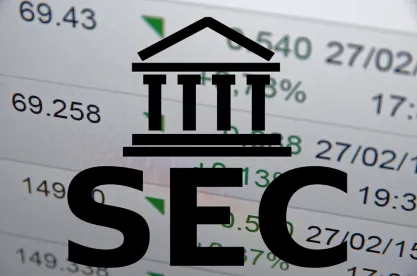On August 4, 2023, celebrity singer Austin Mahone entered into a settlement agreement with the US Securities and Exchange Commission (SEC) after being sued in the US District Court for the Southern District of New York (SDNY) for allegedly violating the anti-touting provision of the Securities Act of 1933. More specifically, the SEC accused Mahone of failing to disclose that he was paid $7,500 (originally claimed to be $20,000) for posting a tweet.
The settlement requires Mahone to pay disgorgement, prejudgment interest, and civil penalties in the amount of $45,724, with $37,535 being civil penalties. Mahone has also agreed to refrain from engaging in violations of the anti-touting provisions of the Securities Act and from receiving any form of compensation for directly or indirectly publishing, publicizing, or circulating any notice that describes a crypto asset security for three years.
SEC vs. Other Celebrities
In March, the SEC sued seven celebrities, in addition to Mahone, for allegedly violating the anti-touting provision of the Securities Act by promoting Tronix (TRX) and/or BitTorrent (BTT). These celebrities include Lindsay Lohan, Jake Paul, Soulja Boy (DeAndre Cortez Way), Kendra Lust (Michele Mason), Lil Yachty (Miles Parks McCollum), Ne-Yo (Shaffer Smith), and Akon (Aliaune Thiam).
Lohan, Paul, Kendra Lust, Lil Yachty, Ne-Yo, and Akon were sued through administrative proceedings, while Mahone and Soulja Boy, along with crypto asset entrepreneur Justin Sun — the creator of TRX and BTT — and his companies were sued by the SEC in SDNY. This was the latest in a series of similar cases initiated by the SEC.
Anti-Touting Regulations
Individuals who fail to disclose any compensatory arrangements relating to their endorsement of digital assets, such as cryptocurrency or NFTs, on social media or otherwise, risk violating the anti-touting provision of federal securities law, specifically Section 17(b) of the Securities Act of 1933.[1] The Securities Act makes it unlawful to promote or “tout” securities without publicly disclosing any payment arrangements made to compensate the person or entity engaging in the touting.
SEC’s SDNY Complaint
In the judicial proceedings, the SEC’s anti-touting allegations revolve around crypto asset entrepreneur Justin Sun, who created the cryptocurrencies TRX and BTT. The SEC alleged that Sun and his companies — Tron Foundation Limited, BitTorrent Foundation Ltd., and Rainberry Inc. (formerly BitTorrent) — offered and sold TRX and BTT through multiple unregistered “bounty programs” that directed interested parties to tout the unregistered tokens on social media without disclosure, violating the antifraud and market manipulation provisions of the federal securities laws.
The SEC’s SDNY complaint accused Mahone, Sun, and Soulja Boy, each with at least one million followers, of touting TRX and/or BTT on social media without disclosing that they were being paid to do so. Additionally, the SEC alleged that these individuals would not have posted the touting tweets without these undisclosed payments, and that explicit instructions were given either directly or indirectly, through intermediaries, to the celebrities to ensure that they did not publicize that they were being compensated.
Responses to SEC Allegations
All of the defendants involved in both the administrative and judicial proceedings, except for Soulja Boy, have thus far chosen to settle without admitting or denying the SEC allegations, presumably to avoid the costs and adverse publicity associated with defending the charges and the potentially more significant relief that could result from a litigated outcome. Through these settlements, the celebrity defendants have agreed to pay a total of more than $400,000 in disgorgement, interest, and penalties.
The settlement order issued by SDNY, in addition to imposing monetary penalties, mandates that the relevant defendants receive no compensation for advertising crypto assets. The settling celebrities involved with administrative proceedings consented to the SEC’s imposition of cease-and-desist orders. These settlements require that the relevant celebrities continue to cooperate with the SEC’s investigation and prohibit them from receiving or agreeing to receive any form of compensation for directly or indirectly giving publicity to any advertisement or the like that describes a crypto asset security.
Lindsay Lohan
In Lindsay Lohan’s settlement with the SEC, she agreed to pay disgorgement, prejudgment interest, and civil money penalties in the amount of $40,670. This settlement came after the SEC accused Lohan of failing to disclose that she was paid $10,000 for promoting a TRX offering on social media.
Jake Paul
The SEC accused Jake Paul of promoting a crypto asset security on Twitter in February 2021 in exchange for $25,019 in crypto assets without disclosing that he was being paid. To comply with the SEC settlement order, he will pay $101,887 in disgorgement, prejudgment interest, and civil money penalties.
Kendra Lust (Michele Mason)
Kendra Lust was accused of failing to disclose a payment of $955 received for promoting a crypto security on Twitter. To settle the SEC’s claims against her, she will pay disgorgement, prejudgment interest, and civil money penalties of $3,882.
Lil Yachty (Miles Parks McCollum)
Following SEC allegations that he promoted a crypto asset security on Twitter in exchange for a payment of $10,000 from the issuer, Lil Yachty has agreed to pay a total amount of $40,670 to cover disgorgement, prejudgment interest, and civil money penalties in order to settle.
Ne-Yo (Schaffer Smith)
The SEC alleged that Ne-Yo was paid $12,000 in crypto assets for promoting a TRX offering on Twitter without disclosing that he had been paid to do so. Ne-Yo and the SEC agreed to a settlement wherein Ne-Yo will pay a total of $48,804 for disgorgement, prejudgment interest, and civil money penalties.
Akon (Aliaune Thiam)
Finally, Akon was accused of failing to disclose that he was paid $42,000 in crypto assets for promotion of TRX by way of a tweet. The SEC’s settlement with Akon requires him to pay disgorgement, prejudgment interest, and a civil money penalty in the amount of $170,814.
Takeaways
There are an increasing number of cases being filed, such as those involving Dapper Labs, DraftKings Inc., KuCoin, Binance, Coinbase, and Ripple, that allege that the creators or sellers of NFTs and cryptocurrencies are engaged in the unlawful unregistered sale of securities. As a result, the question whether a crypto asset is a security is becoming increasingly important.
To date, however, there is minimal binding case law assessing whether cryptocurrencies and/or NFTs are securities, with many of the already issued opinions having been in response to motions to dismiss. Moreover, the question of whether a particular token is a security is highly fact-specific, making it difficult to predict how a court will rule. As a result, individuals, and particularly celebrities, who are considering touting crypto assets should carefully evaluate the relevant assets with legal counsel before undertaking any obligations and proceed with caution.
[1] 15 U.S.C. § 77(q)(b).






 />i
/>i

